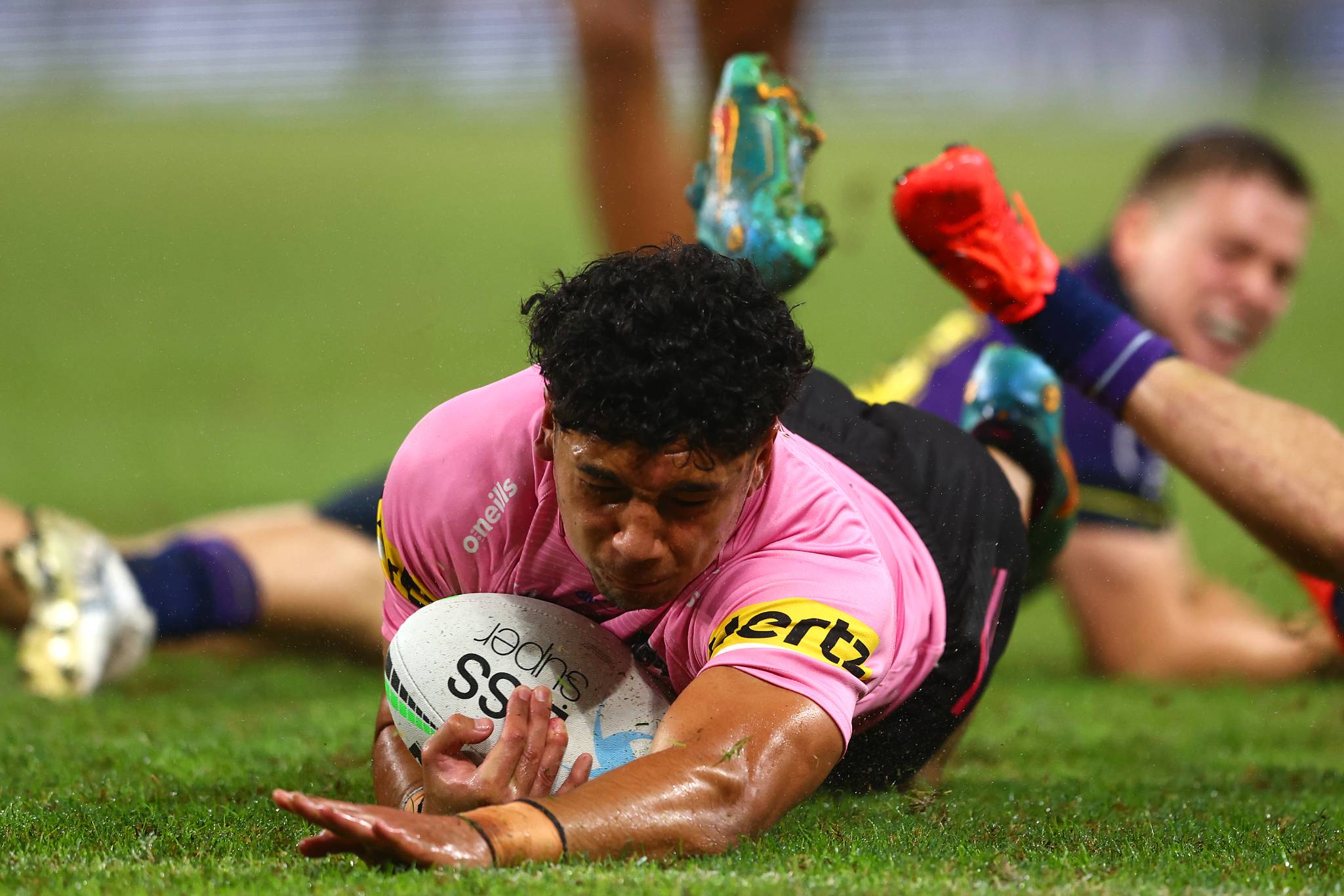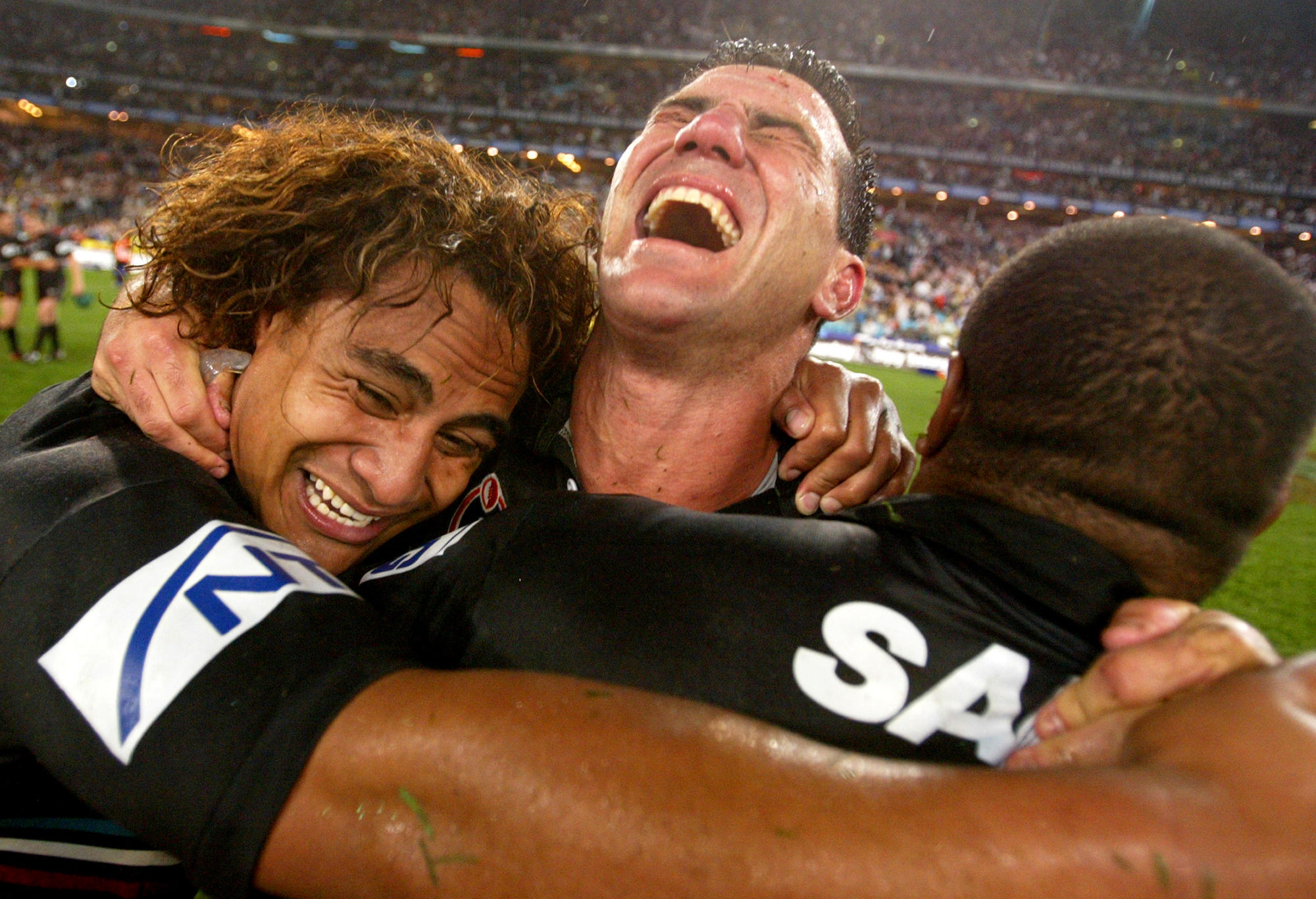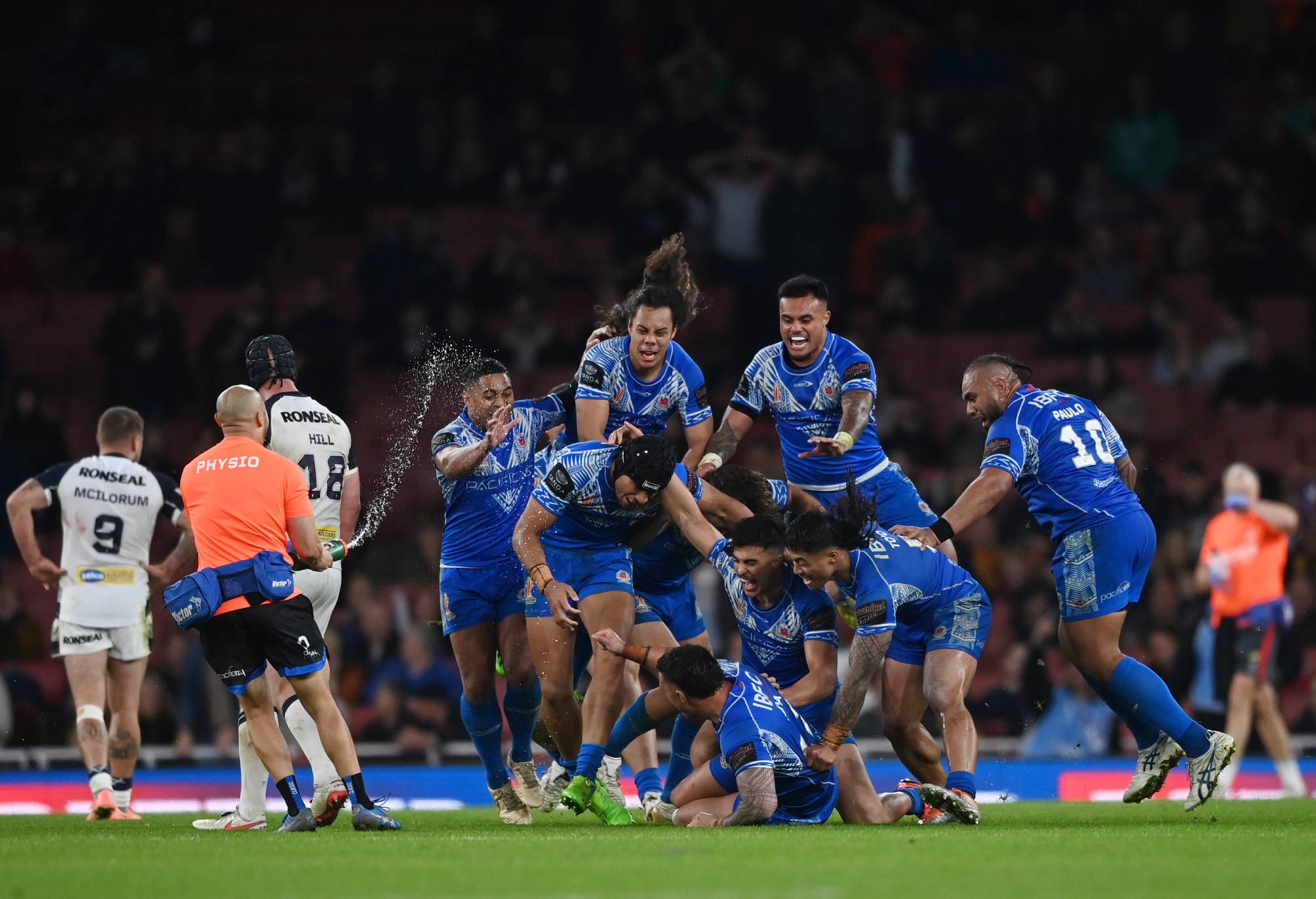Penrith's defence in a nutshell as SEVEN Panthers wrap up Cowboy to prevent game-tying try
It was sheer desperation from the Panthers in defence. They held off North Queensland's second-half comeback in a thriller for a 26-20 win.
The biggest change in the NRL over the 26 years of its existence has come on the field – but it hasn’t been rule changes, transfers or tactics. It’s who is playing the game.
When the NRL was formed in 1998, the league was largely white with limited players of Indigenous and Pacific heritage, but now in 2024, the percentage of players of colour is well over 50% and growing further, a with that has come a commensurate change in attitudes as the best teams learn how to provide a culturally competent environment for their players.
One of the most noticeable aspects of this demographic shift has been in the names of the players, and indeed, how they are pronounced.
Speaking to The Roar League Podcast ahead of Multicultural Round, former Penrith, Manly and Souths star Joe Galuvao spoke emotionally about the cultural journey that the NRL has been on since he made his debut back in 1998, and used Izack Tago’s name as an example of the way that the game has shifted massively with regard to Pacific athletes.
‘When you migrate to New Zealand or Australia, you’re a minority there,” explained Galuvao, who was Wellbeing & Education Manager at the Panthers and now works at the Rugby League Player’s Association (RLPA).
“People don’t know how to say your name so they’ll say it the way that they see it and for us, we won’t challenge it because we just want to fit in, right?
“The downside of that is the loss of identity. Every time it’s being said, we’re losing our identity little by little.
“Izack is a great illustration of players, young migrants, who come to the country and haven’t necessarily grown up culturally, but yearn for cultural identity.
“He probably grew up through school and didn’t challenge what people said about his name because he didn’t grow up culturally as well.
“I remember coming to the club, and I was talking to Stephen Crichton and asking, ‘who are the usos?’, the Pasifika guys here.
“He pointed out Brian To’o, Jarome Luai and then says ‘Tags is Samoan’. I said ‘who?’, because I thought ‘Izack Tay-go’, in my head I thought he was African because of the name.

Izack Tago scores. (Photo by Chris Hyde/Getty Images)
“So I said: “His name is actually Tan-go” and Critta said yes. I was blown away.
“I saw Izack and asked if he was Samoan, and he said yes, and I said ‘so your name is actually Tan-go’, and he said yes, but it makes your life easier.
“It’s the downside of our collectivist nature and values is that we just want to fit in. That’s a common theme for a lot of Pasifika youth coming through. They just stick to the status quo and not challenge authority.
“But from that moment, I didn’t call him ‘Tay-go’, I called him ‘Tan-go’ in staff meetings. Why? Because I wanted to create an environment where he can take back ground in terms of his cultural identity.
“It was a bit of a slow burn, but I kept saying it when I saw him, because I wanted to empower him.”
Clubs were at the forefront of this, but media organisations are getting onboard too, with commentators, journalists and pundits adapting to different names and pronunciations.

Penrith players celebrate their 2003 NRL triumph. (Photo: Chris McGrath/Getty Images)
“I got a phone call from a journalist from Fox Sports, and they said they were calling about a player, Izack, and I said ‘Do you mean Izack Tago?’,” said Galuvao.
“And they said ‘you’re the first person that I’ve talked to that’s pronounced his name properly’.
“The reporter was calling because they wanted to make sure about pronouncing player’s names properly, which I thought was pretty cool.
“He goes: ‘can you ask Izack if he has a preference?’
“I remember seeing Izack and I told him I’d got a call from a journalist – and I get emotional thinking about it – because it’s such a powerful illustration of the struggle that Pasifika players have gone through for many, many years.
“The look on his face was like ‘what, I have a choice?’ I didn’t understand it until after it, I didn’t understand the magnitude of what has just happened.
“If you ask Izack, he’ll tell you he’s on the journey too. Sometimes he reverts back to Tay-go too, but the point is how we can empower the players.
“This is why it’s important for players like Izack to feel like they have a sense of belonging and a pride in who they are.”

(Photo by Gareth Copley/Getty Images)
It might seem like a small thing, but naming and introductions play a huge role in Pacific culture, and, according to Galuvao, understanding the why is just as important as getting the pronunciation right.
“A lot of our young people have migrated and have a disconnect from the culture, and that’s why the default back to what other people say because they are afraid of interrupting the status quo,” said the former Samoa international.
“In the past, with a lot of commentary guys, it was a case of ‘just tell us how it’s pronounced’. You know, send a voice message, break it down. But the approach for us this time around is that they need to know why it’s important.
“We can tell you how to say it, but you need to know why it’s important to pronounce it, because the name is not just a representation of the individual – and again it’s this collectivist – it’s our history.
“Our name talks about the people before us, our elders and the rich history of the land to which we belong. That approach, this time around for the commentary teams, they see the value in it.
“The direct result is players wanting to stay in the game, feeling validated and valued – not only in the pronunciation of the names but also their cultural practices.”